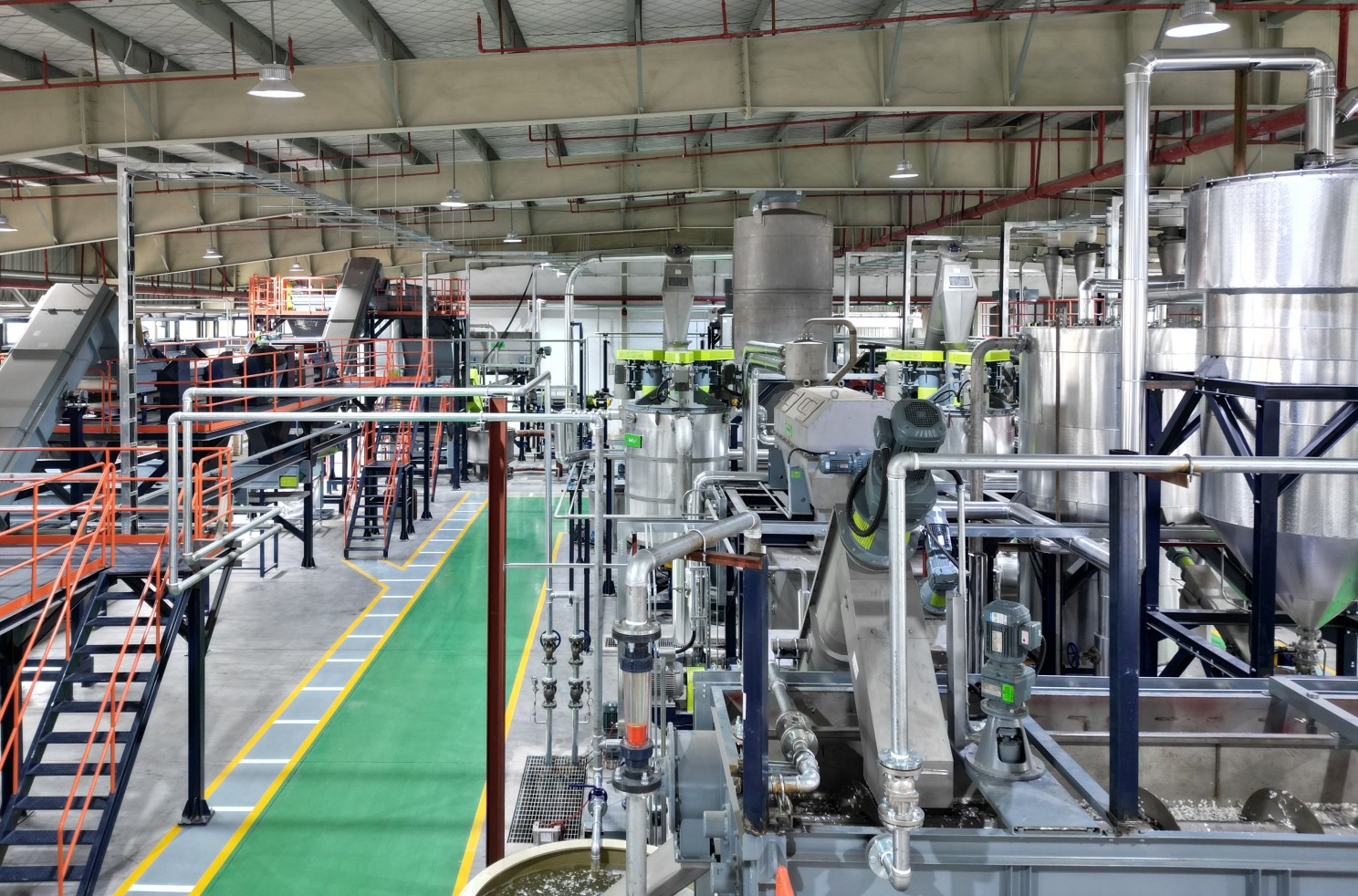Circular Economy in Eco-Industrial Parks
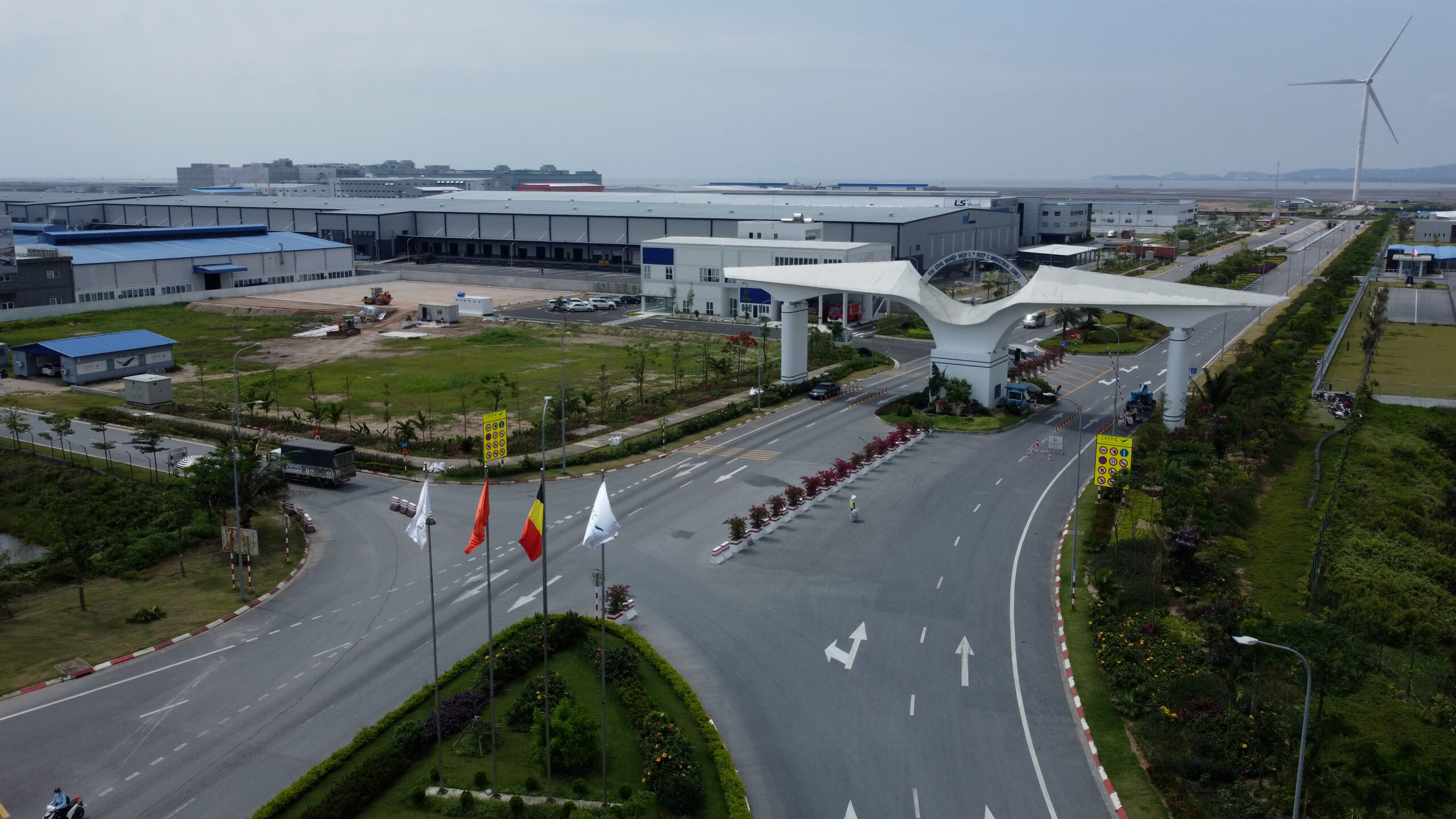
Eco-industrial parks (EIPs) are resource-efficient and cost-effective industrial parks which are more competitive, attractive for investment and risk resilient.
Economic, social and environmental benefits derived from EIPs are substantial, diverse and go beyond the business-as-usual benefits, including job creation. Technologies and business models adopted in EIPs are important for scaling up the circular economy approach and accelerating green, sustainable, and resilient industry growth.
From 2014 to 2019, UNIDO collaborated with the Ministry of Planning and Investment to pilot the transformation of existing IPs into EIPs with funding from SECO and the GEF in Ninh Binh, Da Nang and Can Tho. Accordingly, 56 enterprises applied more than 676 resource efficiency and cleaner production (RECP) solutions, saved over USD 3 million/year through reducing consumption of energy, resources and materials, saved 22,000 MWh of electricity, and over 600,000 m3 of clean water. These solutions have also helped reduce more than 140 TJ of fossil fuels and nearly 3,600 tons of chemicals and waste, as well as 32 Kt of CO2-eq annually, bringing additional economic and social benefits and mobilizing investments from the private sector (around 9 million USD).
In the period of 2020 – 2023, with support from SECO, UNIDO and the Vietnamese Ministry of Planning and Investment continue to support three industrial parks in Ho Chi Minh City (Hiep Phuoc Industrial Park), Hai Phong (Dinh Vu Industrial Park) and Dong Nai (Amata Industrial Park) in their transformation towards EIPs, in line with the international framework of eco-industrial parks[1]. In addition, the project supports the development of business cases for industrial symbiosis at Hoa Khanh (Da Nang) and Tra Noc 1&2 IPs (Can Tho). The project will demonstrate the viability and benefits of EIP interventions in scaling up resource productivity and improving economic, environmental and social performances of businesses and thereby contribute to inclusive and sustainable industrial development.
Technology
The EIP interventions aim at improving productivity of natural resources, including through:
» Higher energy efficiency and renewable generation and use;
» Water supply and wastewater treatment technologies;
» Industrial symbiosis and other material recovery technologies, building symbiotic relationships between various industries that reside in park area to reuse and recycle waste, thus reducing pollution.
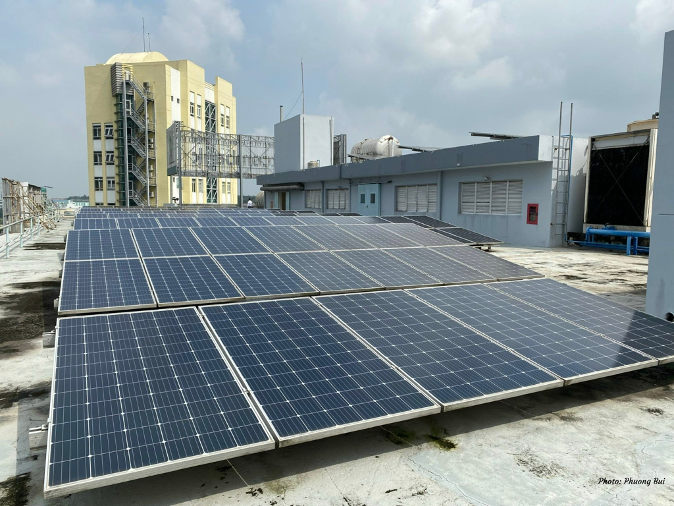
Solar energy production system at Amata IP Photo:©Bui Phuong, UNIDO, Amata IP
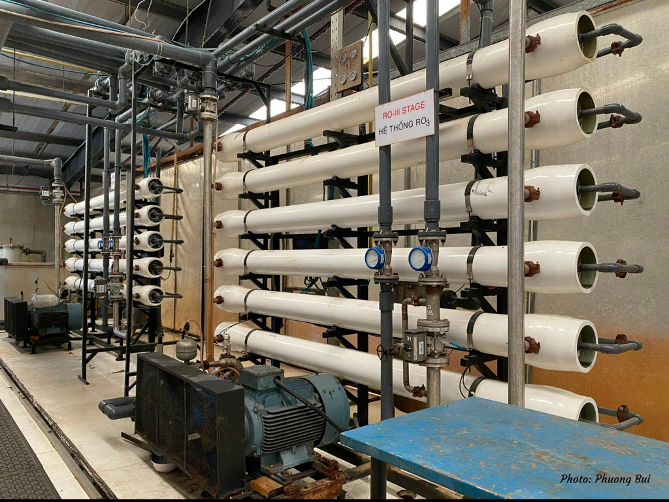 Reverse osmosis waste water treatment system at Saitex company, Amata IP, Photo:©Bui Phuong, UNIDO
Reverse osmosis waste water treatment system at Saitex company, Amata IP, Photo:©Bui Phuong, UNIDO
Infrastructure investment
» Investing in common infrastructure and service provision to optimize the use of resources (e.g. steam networks, cogeneration/trigeneration using biomass and/or biogas);
» Keeping materials and resources in use by encouraging tenant firms to create a symbiotic network and enabling their waste and by-product exchange;
» Designing waste out by encouraging tenant firms to integrate circular designs and to use environmentally friendly materials in their production facilities.
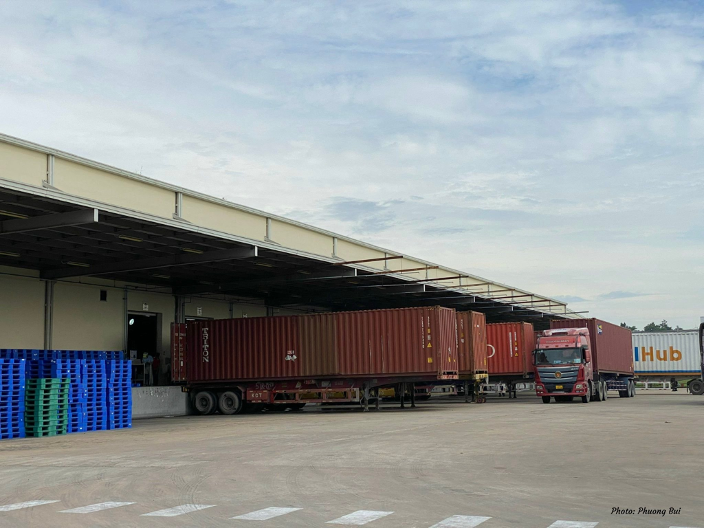
Waste water collection from the airconditioning system to clean the lorries at Brother company, Photo:©Bui Phuong, UNIDO, Amata IP
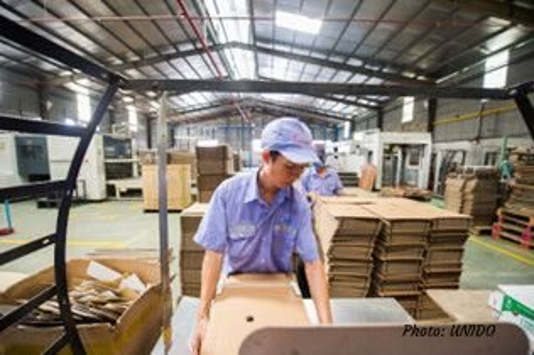
Collecting and sorting of paper and cardboard waste at Tan Long Paper Company, Photo © UNIDO, Hoa Khanh IP
Business models
» Fostering the establishment of recycling enterprises and sorting facilities rendering services to tenant firms;
» Business models for improved energy, water, and waste management at the park level;
» Leverage digital platforms.
In Hoa Khanh IP (Da Nang), the implementation of RECP at 20 firms achieved annual savings of VND 11.34 billion (equivalent to US$ 500,000), saved 2,571 tons of solid waste, 1,034,300 kWh of electricity and 6 million litres of water[1].
The project supported the reuse of the biogas generated by the wastewater treatment plant of a beer company, currently discharged into the atmosphere, reducing fossil fuel use for the boiler of an energy generation company located nearby. This will reduce the fossil fuel consumption and associated costs for the energy company. The project will introduce this model to other companies and IP management to replicate it elsewhere.
In the case of Tra Noc IP, the resource efficiency was improved through better operation of boilers which can save up to 10% of energy consumption, resulting in fuel, cost and emission reductions. By providing skilled operators to the companies located within the industrial zone, the boiler service company could optimise their boiler operations and result in important savings and could provide skilled boiler operators to another paper and packaging factory.
For further information, please contact: a.flammini@unido.org (UNIDO Headquarters), or t.nguyen@unido.org (UNIDO Vietnam); Website: http://eip-vietnam.org/
[1] [2] https://www.unido.org/sites/default/files/files/2021-04/An%20international%20framework%20for%20eco-industrial%20parks%20v2.0.pdf












